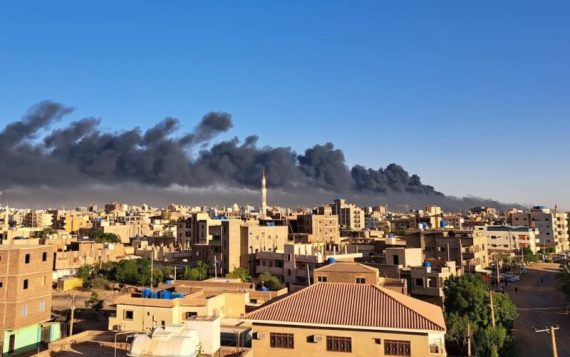T
he parties engaged in the political crisis in Sudan and the root causes that led to the conflict in the country are relatively multifaceted and complex. In 2019, problems such as the economic crisis, corruption, and social injustice continued accelerating in the country. As a result, protests began in December 2018, and the country’s long-serving president, Omar al-Bashir, was overthrown on April 11, 2019.
While the political polarization in the country continued after the uprising, a temporary government was formed under military rule. Even though a civilian administration was established as part of the constitutional amendment in 2021, military forces continued to interfere in the country’s administration. This situation sparked protests and caused lasting political instability in the region.
The parties involved in the political crisis in Sudan are the civilian government, the military administration, political parties, and non-governmental organizations. Factors such as an economic crisis, corruption, social injustice, disruptions in the democratization process, and ethnic and religious conflicts are among the leading causes of the ongoing conflict in the country.
In order to have a better understanding of the recent developments in Sudan, it is necessary to look at the region’s existing parties and dynamics. In this context, Abdel Fattah al-Burhan, the leader of the interim government established after the uprising in 2019, serves as the head of the Sudanese Sovereignty Council and the army commander. On the other hand, General Mohamed Hamdan Dagalo (known as “Hemedti”), who does not come from a military background, serves as the leader of the Sudanese Rapid Intervention Forces (RIF).
Playing a critical role in Bashir’s administration during the country’s political crises in 2005, Hemedti was regarded as one of the most influential figures in the government. Hemedti is a member of the Rizeigat tribe, based in the west of Sudan, and has maintained his critical position in Sudanese politics in the post-Bashir period as a military leader.
Recent developments in Sudan
The current upheavals in Sudan indicate that the raging political conflict continues to accelerate in the region. On April 14, 2023, the Sudanese army raided the Rapid Intervention Forces headquarters. The prevailing view is that Hemedti’s units rather than being complementary to the Sudanese army are, in fact, a separate military structure. Presently, Burhan is trying to weaken Hemedti’s troops, but it seems too late.
The conflict in Sudan could further aggravate the political crisis and potentially destabilize the country. In particular, Hemedti commands a robust military presence in the region, and tensions between Hemedti and Burhan may evolve into a larger-scale military conflict, dragging the country into a civil war and harming the political process by further deepening the political deadlock.
What is more, the country’s geopolitical position may cause other countries, especially neighboring ones, to become involved in the political crisis, deepening the existing problems and further complicating the negotiation possibilities.
In order to avoid the prospect of political instability in Sudan affecting it, Egypt may intervene to alleviate its concerns about Sudan’s resources on the Nile which include the Roseires, Sennar, and Merowe Dams. These dams play an important role in Sudan’s hydroelectric power generation and provide irrigation for the agricultural sector.
Second, Egypt and Sudan have conflicting interests regarding the disputes in the Tigray region of Ethiopia, located northeast of Sudan. Third, disputes between Sudan and South Sudan continue to persist. The political crisis in Sudan can negatively affect the resolution process of these conflicts, and South Sudan may also become involved in the current crisis.
Regarding extraregional powers, the UAE and Saudi Arabia have close ties with some groups in Sudan. The crisis in the country may affect the interests of both countries and cause the UAE and Saudi Arabia to become more involved. Besides these countries, the African Union (AU), the League of Arab Nations (LAN), and other regional organizations will likely become involved in resolving the crisis.
Recommended
A political process is needed
However, all interventions must be conducted peacefully, with respect to the country’s sovereignty, and in alignment with the interest of the Sudanese people. To ensure stability in the country, parties to the conflict must cooperate through dialogue and reconciliation to resolve the tension within the Sudanese administration.
A political process incompassing all parts of Sudan must be initiated and supported for a sustainable solution. Clearly, the conflicts in Sudan threaten the country’s stability, and serious political will and a negotiation process are required to resolve the crisis effectively. Otherwise, Sudan may become the “New Libya.
Meanwhile, Sudan is also engaged in conflicts with neighboring countries such as Egypt, South Sudan, and Ethiopia. The international community needs to support Sudan and make efforts to end the current conflict. At the same time, the economic crisis in Sudan, which deepens the political turmoil and complicates the solution process, should not be ignored. Although it is difficult to be optimistic about Sudan’s future, it is necessary not to give up hope for a peaceful resolution to the ongoing conflict.





